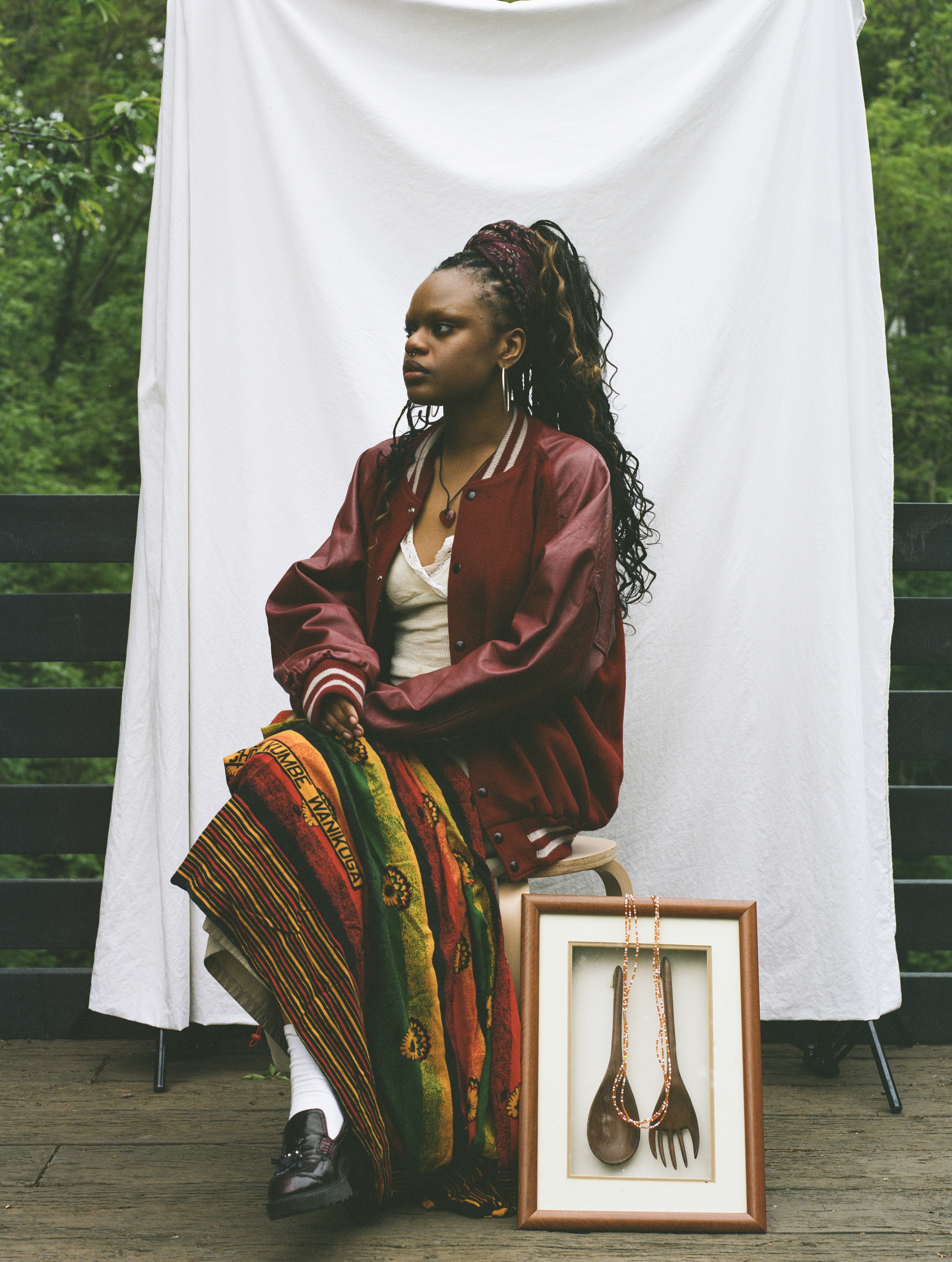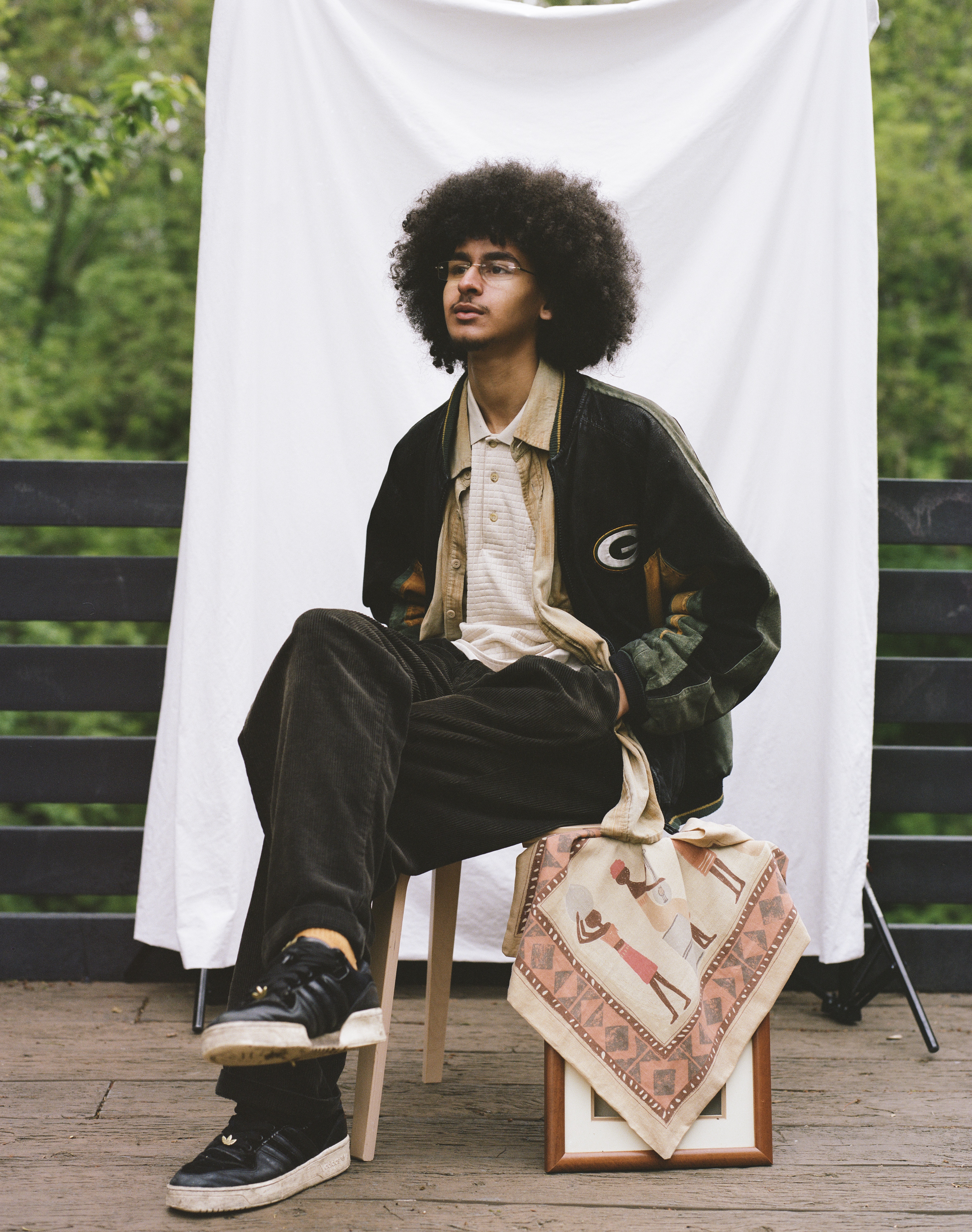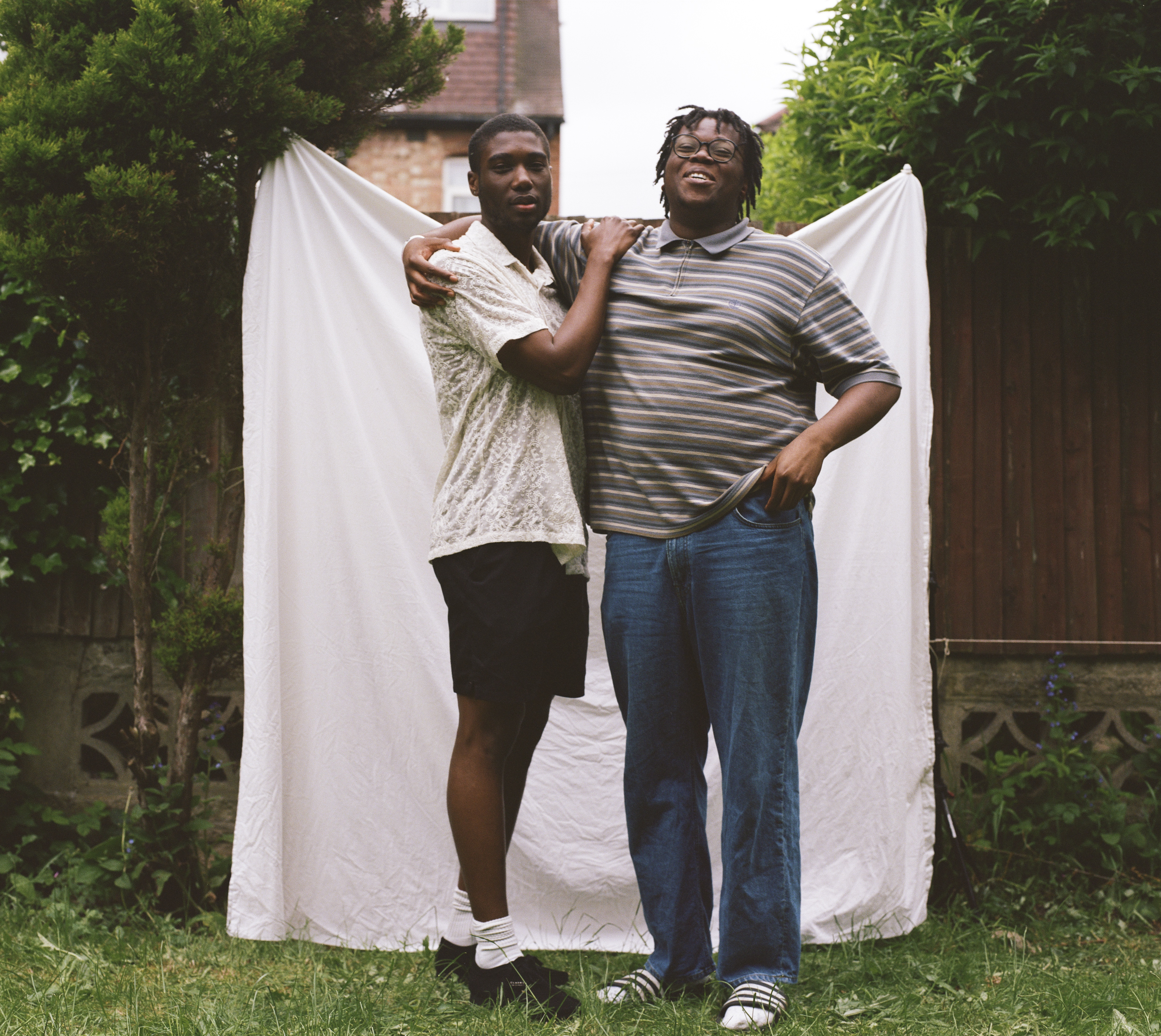All images © Akin James
At a time of division and demonisation, the London artist draws on his own heritage to embrace the city’s diversity
Born and raised in north London, Akin James recently graduated from the London College of Communication’s BA in photojournalism and documentary photography. His final project, titled New Britain, featured people who, like him, grew up with a diasporic inheritance. Shooting friends with close ties to various countries, his aim was to create an archive for the future; a picture of what the UK looks like now.
James’ sitters are photographed in front of a white sheet, suggesting a formal portrait but not fully covering the locations, which include a London park and a friend’s back garden. Firmly situating these people in their country, these images also bring gravitas – the fact they are records for the future and also, perhaps, have the feel of a portrait sent ‘back home’. “My mother’s parents were from Nigeria, my father’s were from Trinidad, and he moved back as a child then returned to London,” says James. “Our family photos were made to show how we were getting on. Partly they’re to show prosperity, even if things aren’t going so well.”


“The hope is in us, the people coming into power are going to be us”
Working with medium format film, James photographed each of his sitters with something connoting community, be that fabric from Sudan, a pot carved from a Tanzanian calabash, or a good friend who saw them through hard times. ‘Family’ is not necessarily a blood relative if your relatives are thousands of miles away, James points out. When he was growing up, his aunties were back in Nigeria, or Trinidad, or New York, but there were close family friends nearby. He sees this experience as common to all diaspora, and part of what makes contemporary Britain so rich; people bring cultures from all over the world and add them to the mix.

James’ work also serves as an intervention in a Britain in which attitudes to migration have hardened. In another project he filmed a friend originally from Bulgaria who describes his experience of the UK. He has always felt accepted in London, he says, but the media has become hostile, demonising those from Eastern Europe. Even so, his narrative ends on a positive note, centring on the fact that young people see things differently. “The hope is in us, the people coming into power are going to be us,” he points out. “We’re going to be global.”
James is also upbeat about the future, keen to get started on his career and already working with photographer Nadine Ijewere. He also sees wider shifts, and says photography is part of the change. “I think we’re in a transitional period,” he explains. “Everyone has a camera these days, so we get these different points of view. In the past there were certain narratives [because of the people who predominantly took the pictures]. Now that power doesn’t hold as much weight.”

